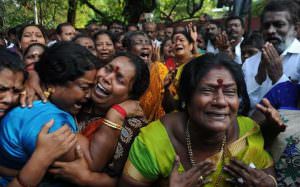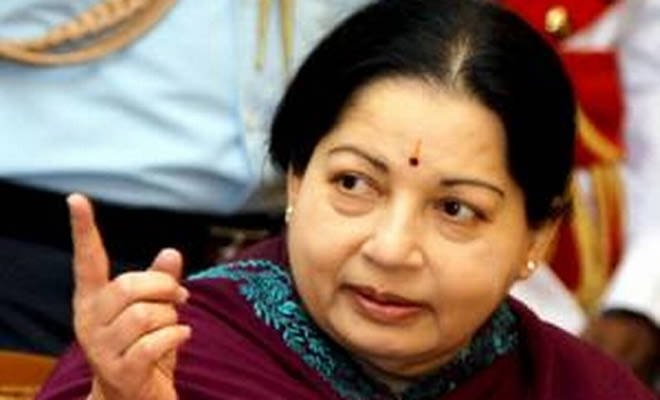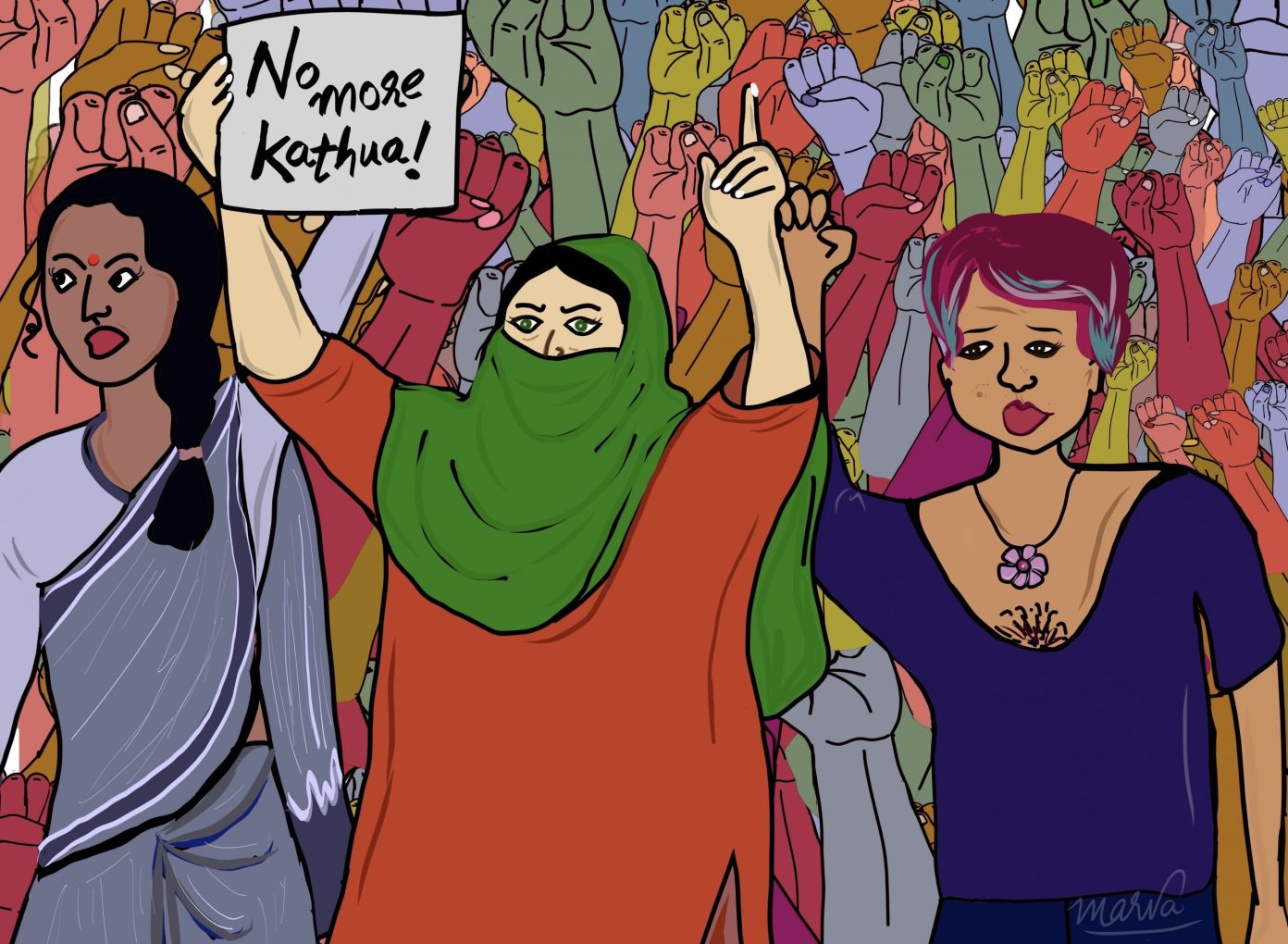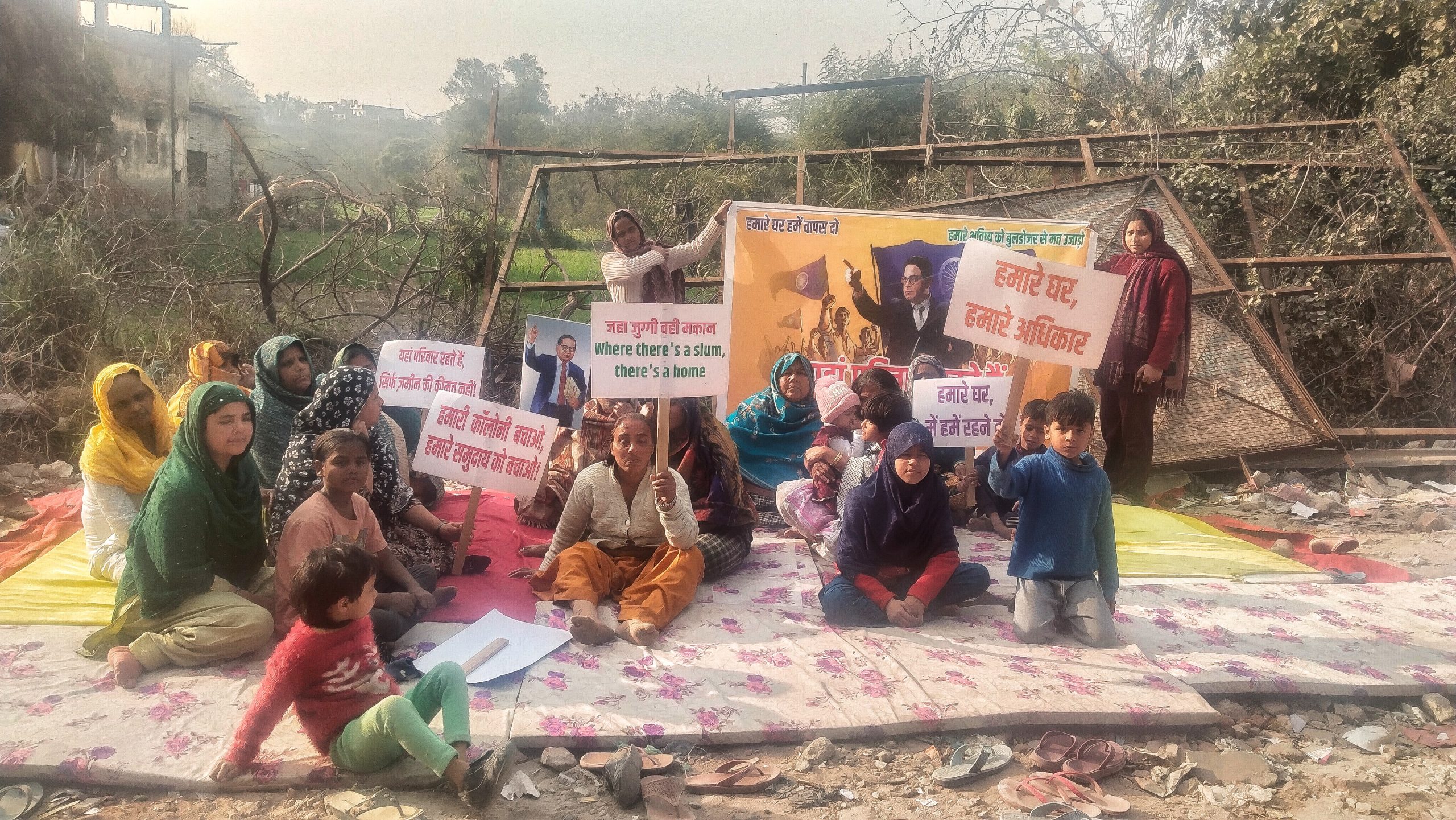Jayalalithaa lived a unique life marked by the deepest of tragedies and the greatest of successes. It is impossible to talk about her struggles and achievements however, without the context of her gender in the deeply patriarchal and sexist political sphere of Tamil Nadu.
Forced into films by her mother, Jayalalithaa’s public life as an actress began at the early age of 16 and quickly peaked, becoming the leading actress of her time in Tamil cinema. It is in the film industry that she was brought into contact with MG Ramachandran, the charismatic superstar who brought Jayalalithaa fame by working opposite her in 28 films.
MGR’s proximity to her life was a major aspect in Jayalalithaa’s later political career. Much of her political legitimacy in the AIADMK cadres came from her claim that MGR had made her swear never to quit politics, thereby positioning her as his political heir. And what a political heir she was. Jayalalithaa created a Tamil Nadu that ranks at the top of every development index, from literacy and education to low crime rates. The political atmosphere in Tamil Nadu has long been starkly dichotomous with the public voting in DMK and AIADMK in alternate elections. Jayalalithaa got on top of this power struggle when she was elected back-to-back in two elections in 2011 and 2016 – the first time this had happened in 32 years. Her strong personality commanded respect, and many saw in her the same political charisma that had inspired such strong devotion towards MGR.
However, Jayalalithaa had to face the challenges that being a woman entailed, something that MGR did not have to battle. Her story is a testament to fortitude in the face of the rampant misogyny present in Tamil Nadu politics.
It started early in her political career, when those jealous of MGR’s associations with her , began calling her a ‘temptress’. When MGR took her under his wing, her rivals cast aspersions that she was a vixen playing tricks with his mind. When she officially joined the AIADMK as a party member in 1982, the DMK twisted her statement of having joined politics in order to ‘serve the people’, by interpreting it in a misogynist and objectifying fashion with lewd comments on how young people should use her body as she had given it in ‘service’ of that state.
In the power struggle after MGR’s death between MGR’s wife Janaki and herself, her opponents used extremely sexist language to deride her legitimacy to the party. They went on a vicious campaign to promote her image as a woman of loose morals and no virtue. Her single status and background as an actress was pitted against Janaki’s wholesome married status, with Janaki’s supporters proclaiming the respect they felt for Janaki being a sharp contrast to the sexual feelings that Jayalalithaa evoked. When MGR died, Jayalalithaa took a position of prominence at his funeral, standing vigil at the head of his lifeless body, thereby presenting herself as his rightful political heir. However, this possibly strategic move was not taken well by his wife Janaki and her family. When she tried to go with the body to its burial ground, she was literally shoved out of the vehicle to the ground, and loudly derided as a prostitute by Janaki’s nephew.
The Assembly attack in 1989 however was the worst instance of the misogyny that Jayalalithaa faced. An altercation between AIADMK and DMK party members led to shoes and objects being flung at Jayalalithaa, and one DMK member attempting to pull off her sari. Jayalalithaa walked out of the Assembly hall, disheveled, shaken, upset, and wrathful. She swore that she would not step foot inside the Assembly until conditions were safe for women in the Assembly hall, and she was Chief Minister. Two years later, she won the elections in a thumping majority, and returned to the Assembly as Chief Minister.

Jayalalitha after being assaulted in Tamil Nadu Assembly. This instance garnered widespread sympathy for Jayalalithaa which eventually aided her comeback to power in the subsequent Assembly elections. Source: Indian Express archive photo on 1989.
Jayalalithaa was an incredibly fortitudinous woman. Instead of being beaten down by these constant attacks, she rose above them. In her interview with Simi Garewal, she is asked which arena is more unwelcoming of women – film or politics. Her answer is nuanced. She says that in film, for better or for worse, women are required as the ‘glamour quotient’. So despite the inherent objectification associated with women in films, they are given a place in it. But in politics, women are not necessary at all. She goes on to speak of the various attempts to push her out of the political arena on the basis of her gender. But, displaying her usual self-assurance, she grimly smiles and says, “it’s not so easy to just wish me away.”
Jayalalithaa combatted the sexist objectifying imagery associated with her background as an actress in a very deliberate manner. She understood that while male actors enjoyed massive popularity as politicians, the same was not true for women. This led to her drastically altering her image in a bid to deglamorize and desexualize herself. She stopped wearing makeup or jewellery and began to wear only simple saris, usually covered in a cape that sheathed her body. Jayalalithaa also realized that in order to gain legitimacy as a woman leader, she would have to adopt a persona that embodied female authority in the private sphere – the mother. Hence, she adopted the persona of ‘Amma’ – the nurturing caretaker of the State and its downtrodden masses. In response to the sexism that she faced, she simultaneously claimed the figure of the victimized woman and the benevolent mother. With time, ‘Amma’ became a brand, and a brilliant political manoeuvre. Her face smiles benignly from millions of hoardings across the state, reminding its citizens that the all-powerful yet nurturing Amma was watching.
In her interview with Simi Garewal, one can see her strong and dignified sense of self. She does not falter, she does not doubt herself, and she occupies a radical self-assurance. This personality was consciously groomed in order to validate her authority in the political sphere. Her plan worked, and how. Often being charged with having sycophantic followers and subtly encouraging this sycophancy by rewarding loyalists and punishing detractors; Jayalalithaa enjoys an overwhelming and unquestioning devotion from her party cadres, almost to the point of totalitarianism. Many female supporters have even mentioned that their admiration of her lies in the raw power she exudes over her male party members that lead them to fawn over her in deference.

Women grieve following Jayalalithaa’s death. The death of a woman as charismatic and powerful as Jayalalithaa is an especial blow to women, who saw in her a larger-than-life icon who overcame the obstacles of sexism to rise to the top. Source: AFP
However, this authoritarianism that she has been criticized of is unsurprising in the face of the sexist battleground in which she waged her political wars. Jayalalithaa muzzled independent press, filing hundreds of defamation lawsuits against journalists who criticized her. While interpreting her actions as intolerant or totalitarian are justifiable, one must remember that her actions might have been in response to the sexist personal attacks that media criticism of her often degenerated into. The media has attacked her for her lack of a husband, her potentially romantic relationship with MGR, an alleged lesbian relationship with her aide Sasikala, and all manner of personal issues that have no consequence on governance or policy-making in the state in her capacity as Chief Minister or Leader of the Opposition.
Jayalalithaa’s life is testimony to the difficulty that women in politics might face – especially those that do not come from politically established families. Given the patriarchal structure of the family, women are expected to balance a home and work life, something that is difficult in a career in politics. In the Simi Garewal interview, Jayalalithaa mentions how being unencumbered by a family aided her complete immersion in a career. Apart from entrance into politics, women politicians face constant belittlement and challenges to their authority by a country that finds it difficult to answer to a woman in power. In order to surpass these obstacles, women in power often need to internalize masculine norms whilst also conforming to feminine norms in order to gain acceptance. Hence the maxim, “look like a woman, act like a man”. It is a towering testament to Jayalalithaa’s immense force of will and fortitude that she managed not only to survive, but excel in this political climate that is so deeply unwelcoming of women.
Sources:
Amma: Jayalalithaa’s Journey from Movie Star to Political Queen, Vaasanthi – Juggernaut Books, 2016
Review: Mapping Jayalalithaa’s Incredible Journey, Kalyanaraman – The Wire, 21 June 2016
What Happens When A State Is Run By Movie Stars, Rollo Romig – New York Times, 1 July 2015
Women in Politics: Rising in spite of Sexism, Swathi Saxena – NewsD, 2 August 2016
Rendezvous with Simi Garewal – Interview with Jayalalithaa in 1999
Female Political Leadership in India, Carole Spary – Female Political Leadership in India, 2007, 45:3, 253-277, DOI: 10.1080/14662040701516821
About the author(s)
Asmita is a Freelance Communications Consultant, and specialises in leading digital advocacy campaigns for social and gender justice issues. When not using social media for work, she uses social media for fun (and a healthy dash of existential despair).





Very well written ! Jayalalithaa will serve as an inspiration to every woman in the country..